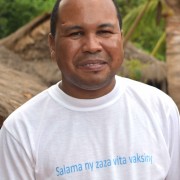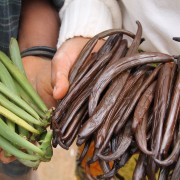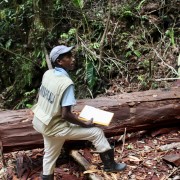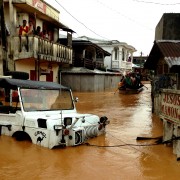Speeches Shim

Analalava is a long way from anywhere else. This remote district of rice paddies and vanilla plantations in northwestern Madagascar is very difficult to access by land, especially during the rainy season. Scattered among these rainforest-covered hills are over 165,000 people, including a number of women of childbearing age and young children.

The U.S. Embassy in Madagascar, USAID Madagascar, and the Madagascar Ministry of Tourism announce their “The Natural Beauty of Madagascar” postcard photography contest. The event is free to enter and entrants may submit up to ten (10) photos for consideration. Winning submissions may be included in a public photography exhibition in Antananarivo and select images deemed best-suited to support a message of Countering Wildlife Trafficking will be printed as postcards and distributed throughout the country.

Vanilla farming in Madagascar is a volatile endeavor, with crop theft, price fluctuations, and limited market access among the biggest obstacles working against success. Yet some farmers in the dense, rain forested, Ranomafana area of central Madagascar have recently turned to vanilla and are finding success thanks to a partnership with Lafaza, an American agribusiness, founded by a pair of former Peace Corps volunteers.

Madagascar is home to more than five percent of the world’s plant and animal species and is a global priority for biodiversity conservation. A recent report found that political instability, government mismanagement, a lack of forest operation controls and a lack of penalties on well-known traffickers led to effectively zero control over the management of precious timber resources in Madagascar between March 2010 and March 2015. During that time, at least 350,000 trees were illegally felled inside protected areas and at least 150,000 tons of logs were illegally exported to destinations including China, Malaysia and Mauritius. Rosewood and ebony species, highly valued in the furniture industry, are hardest hit by trade. Trees that took hundreds of years to grow to harvest size will not quickly grow back once cut. Shrinking forest cover means people do not have access to fresh water, wildlife and other forest resources they need for their lives and livelihoods.

On Wednesday, March 8th the powerful cyclone Enawo drove straight through the heart of Madagascar, bringing torrential rains and howling winds up to 300 km/hour to batter the island nation. By many accounts it was Madagascar’s strongest cyclone in 13 years. Communities along the northeastern coast, where Enawo made landfall, were the hardest hit, but heavy and constant rains unleashed widespread flooding as the storm carved a trail south along the spine of the island.

Comment
Make a general inquiry or suggest an improvement.